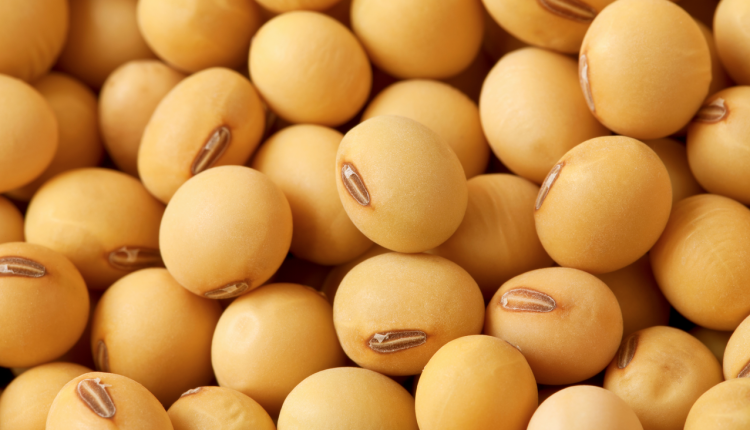Over 22,000 farmers have benefited from the Sustainable Soybean production in Northern Ghana (SSPiNG) project. Professor Sammuel Adjei-Nsiah who announced this indicates demonstration plots were established in 133 communities in 16 project districts and used to train farmers in soybean productivity enhancing technologies.
This has contributed to increased soyabean production in the country as farmers under the project produced 61,878 metric tonnes of soyabeans during the farming season in the year 2022.
As a result of that, farmers have been able to increase their yields, livelihood, and profit margins. Prof. Adjei-Nsiah revealed this in a presentation at a meeting to review activities implemented under the project in 2022, and to further identify strategies to improve and achieve the project’s targets.
The two-day meeting, held in Tamale saw the attendance of farmers, aggregators, staff of the project and Yara Ghana, representatives of the Norwegian Agency for Development Cooperation, representatives of the Department of Agriculture from the beneficiary districts as well as other value chain actors.
The SSPiNG project seeks to ensure sustainable increase in the production of soybean to meet the demand in the country and to also enable rural households to improve their food security and raise their incomes on a sustainable basis.
The project is implemented by the International Institute of Tropical Agriculture (IITA) and Yara Ghana in partnership with the Ministry of Food and Agriculture, Wageningen University and Research and Felleskjopet Rogaland Agder and funded by the Norwegian Agency for Development Cooperation.
Beneficiary districts include Bawku Municipal, Bawku wWest, Binduri, Wa East, Sissala East, Sissala West. The rest are West Gonja and East Gonja, Karaga, Savelugu, Nanton, Gushegu, West Mamprusi and East Mamprusi, Yendi and Saboba.
Some of the activities implemented under the project in 2022 included the capacity building of aggregators, nucleus farmers and some commercial farmers, introducing good agronomic practices to farmers, facilitating Public Private Partnerships around capacity building among others as well as training of value chain actors in farming as a business, contracts and negotiations.
The project also supported some nucleus farmers and aggregators to acquire 15 multi-purpose threshers to ensure quality grains and to reduce drudgery and work load on women who do manual threshing of soybeans. Country Representative of IITA-Ghana, Dr. Richard Asare indicates more will be done to improve soybean production in the country.
On her part Jessica Nyman Senior Advisor at Norwegian Agency for Development Cooperation, expressed happiness at the level of work undertaken under the project.
She said there is a need for project partners to discuss strategies to improve women’s access to mechanization services to speed up the planting process of soybean grains.
Acting Managing Director of Yara Ghana Agbenyega noted the project has improved knowledge on soybean production. He has, however, assured farmers of the availability of fertilizers this farming season.
Source: zaanews.com/Lilian. D Walter/Tamale


